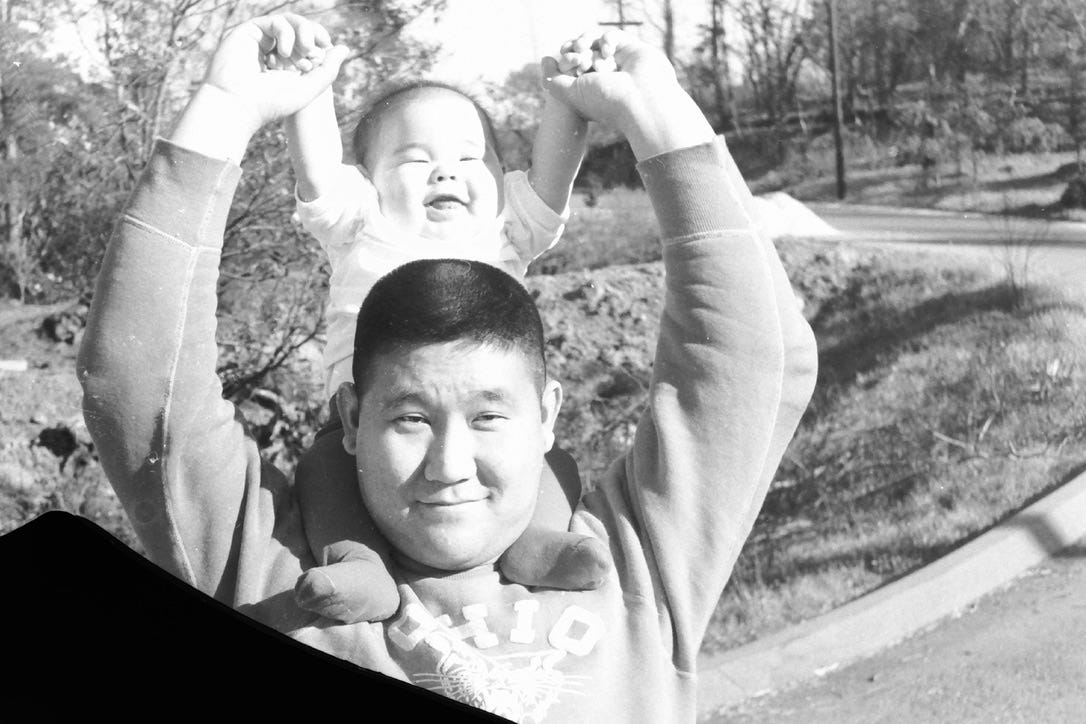How the 4-day week could increase investment in families and communities
also, one great song
Recently, the Tokyo Metropolitan Government announced that it would implement a 4-day week option for workers, to make it easier for workers to start families. The South China Morning Post has more on the plan:
The expectation that working mothers should still shoulder domestic burdens, raise children and care for relatives is believed to be a key factor behind the dearth of babies.
To make work-life balance easier for parents, Governor Yuriko Koike wants to offer civil servants employed by the Tokyo metropolitan government the option to work a truncated week beginning in April.
“Lagging behind in women’s empowerment is Japan’s long-standing issue, and overcoming the status quo and making society more diverse and prosperous is key for our bright future,” she said in a policy speech to the assembly.
“We will start with thorough support for work-life balance by introducing a more flexible working hour system, such as three holidays per week,” she added.
Under the plan, government staff except shift workers may take up to three days off weekly, but will still need to complete 155 hours per month, Sachi Ikegami, a Tokyo Metropolitan Government official in charge of personnel affairs told AFP on Wednesday.
Employees raising young children will also be offered more flexible hours, with work days shortened by up to two hours, Ikegami added.1
Will it work? I'm cautiously optimistic. In my conversations with people who've been at 4-day week companies for several years, a shorter workweek CAN encourage people (especially young women) to start families. The 4-day week gives them more free time in the short run, and greater confidence that in the long run they'll be better able to return to their jobs, balance the demands of career and parenthood, and not suffer the flexibility stigma or motherhood penalty that is so common among working mothers.
On the other hand, these are workers making choices in organizations where everyone is working a 4-day week, everybody is working together to make it possible, and nobody's flexibility is perceived as coming at someone else's expense (the single workers don't have to pick up the slack for the young parents). So you might not see the same impact in a workplace where only some are working 4-day weeks, and still having to negotiate the "why does she get to leave early" remarks from colleagues.
(A more conservative government would also have an easier time justifying ending the program: if you can't demonstrate a big spikes in fertility rates, or don't have baseline data to compare family size before and after the policy is implemented, it'll be easy for a new governor to say, "This is all vibes, we need to get back to basic and stop coddling these lazy unproductive bureaucrats.")
But this DOES point to a bigger issue in developed economies: that the rise in working hours outside the home has had a detrimental effect on birth rates, families, and communities. And the 4-day week, if widely and wisely implemented, could have a real impact on that problem, and give us more time for “the work of social relationships,” as Ivana Greco puts it.
Isabel Sawhill and Katherine Guyot published a piece in 2020 about working hours (i.e., paid work outside the home) in the United States, looking at how time pressure has affected families, care duties, and our ability to invest in community life. They report that:
The average middle-class married couple with children now works a combined 3,446 hours annually, an increase of more than 600 hours—or 2.5 additional months—since 1975. This average combines dual- and single-earner couples, but the trend is mostly driven by increases in the employment of, and hours worked by, women in dual-earner couples.
So in a period where we've seen enormous increases in productivity thanks to computers, the Internet, factory automation, etc., working hours have gone UP, and wages have hardly kept up (and, Sawhill and Guyot note, 90% of the gains in household income in this period have come from women entering the workforce). Those increases might have been greater, but there's another problem:
The challenge of aligning work with family life has damaged women’s wages and employment opportunities. A significant portion of the gender earnings gap is driven by mothers’ less continuous labor force attachment and lower hourly wages. Women tend to sort into occupations or firms with more family-friendly schedules or policies. They also pay a wage penalty for workforce interruptions and shorter hours.
So let's assume that since 1975, the average household has lost 600 hours a year that they could have spent doing family things, or planting a garden, or helping Auntie Mabel with her shopping, or volunteering with the church or Habitat for Humanity. Now imagine that full-time workers move from a 5-day 40-hour week to a 4-day, 32-hour week. Assuming they go from 40 to 32 hours per week, and work 50 weeks a year (with 2 weeks' vacation), that's
8 x 50 = 400
hours per year of free time created-- or following Sawhill and Guyot, free time that's recovered.
And this doesn't have to come at the cost of lower wages: the companies I work with cut hours while leaving salaries and output unchanged, by focusing on ways to improve efficiency and collaboration, and returning those gains to workers.2
So by moving to a 4-day week, a household with two parents would get back 800 combined hours per year of free time-- enough time to get us back to a 1970s standard. How much good would this do for families, and communities, and people's physical and mental health? I don't want to resurrect that era's avocado-colored appliances and assumptions about women's intelligence, but I think it would represent an enormous social and cultural good, and would contribute to fixing our sense of what's broken about modern life.
Finally, would people really spend this time on prosocial things, rather than wasting it day-trading meme stocks? Turns out, from what we can tell, a 4-day week is a bit like universal basic income: if you give people more time, they do disgustingly healthy things with it.
When I put this question to the cofounders of London design firm Normally, where they’ve been working a 4-day week for nearly a decade, this is what they said:
[F]or most of Normally, free time “is about taking care of someone,” Marei Wollersberger says. “That someone can be yourself, and your own health and well-being. It can be children. It can be a parent who gets ill, and the person wants to spend more time with them.”
“Absolutely,” [cofounder] Chris [Downs] agrees. “So yeah, if you summarize what people do with their fifth day? They care.”
One song: Simple Minds, “First You Jump”
If you are of “a certain age,” to quote from a recent dust-up, you’ll remember the Simple Minds’ song “Don’t You Forget About Me” from the movie The Breakfast Club.
They’re honestly a group I had not thought about for ages, until I was reading Ricky Ross’ Walking Back Home, and he talks about touring with Simple Minds in the early 2000s. Wait, I thought, Simple Minds is still together? That’s a blast from the past.
I have a particular interest in musicians have had long careers, as I’m myself at the point where questions about career longevity and creativity are a thing; and so I was heartened to find that Simple Minds is not just together, but they’re still really good.
Plenty of bands from the 1980s are still around but are not recording new music, pushing boundaries, or attracting new audiences; they’re basically nostalgia acts playing summer festivals or Vegas shows. Not that there’s anything wrong with that; any working creative who can make a living has my respect. But the ones who are still trying to do interesting things are the ones who really interest me.
The song that caught me, and made me think this was a band worth following again, was “First You Jump.”
Bassist and coauthor Ged Grimes calls it a “classic transcendent Simple Minds anthem, one about the anxiety of the times and how we will rise above them.” In this instance, the anxiety was represented by a single person: “While we were making the record, a friend of mine, his kid … was suffering really badly,” Jim Kerr says. “And [in] the song … I'm using that phrase metaphorically. It’s almost like saying ‘keep the faith’ or ‘don't be afraid.’ Jump in. Things won’t be as bad as you think. You'll find a way to glide.”
Check out this video, shot in the ancient ampitheatre in Taormina, Sicily near Jim Kerr’s hotel, for “First You Jump.” Not very complex staging, but when you’re in a Roman amphitheater, anything you do is going to subtract from the experience, not add to it:
But it’s not just a song about keeping the faith; it operates at a second level (as many of their songs do— for someone who looks and dresses like a plumber enjoying a night out, Kerr’s lyrics are usually more complex than you’d expect).
Simple Minds has been a working band since the 1970s, but as The Guardian put it in a 2022 article, “After a rocky period in the early 2000s when [frontman Jim] Kerr remembers ‘driving in a minibus past stadiums we used to sell out en route to a club that’s not sold out’, they decided not to ‘go around like punch-drunk boxers, just doing it because we don’t know what else to do’.”
So he and guitarist (and childhood friend) Charlie Burchill refreshed their lineup; as Kerr put it, “everyone needs to strap on new engines,” and having new collaborators has given them new energy.
“First You Jump” expresses that sense that you should keep experimenting, and “never feeling that you've achieved everything. You've always got somewhere else to go,” Kerr explains in another interview. “The band wouldn’t be going for 42 years if we hadn't recognized that change is good.”
Also, a bonus: “Dolphins,” from their 2004 album. A simple, but heart-rending song about feeling lost, inspired by another friend’s child and their struggles with depression. Here’s a live version:
It sounds to me as if these are two different initiatives-- you can either do a 4-day week with longer days, OR choose to shorten your workday by taking "child care partial leave" (presumably with your salary prorated). Also, the Tokyo metropolitan government (which apparently is more like a state than a city, technically?) has had an option for a few years that lets workers take off one Friday in four, and make up the time on other days, so this is a bigger version of that.
And if you argue that the way we've worked represents an economically rational bargain that nobody was forced to accept, show me the person who looked at their own working lives and thought, "I'll have less time for church and my children, but on the upside, I get to spend more time in traffic and meetings." The license agreement that comes with late-stage capitalism is 10,000 pages long and written in invisible ink.






